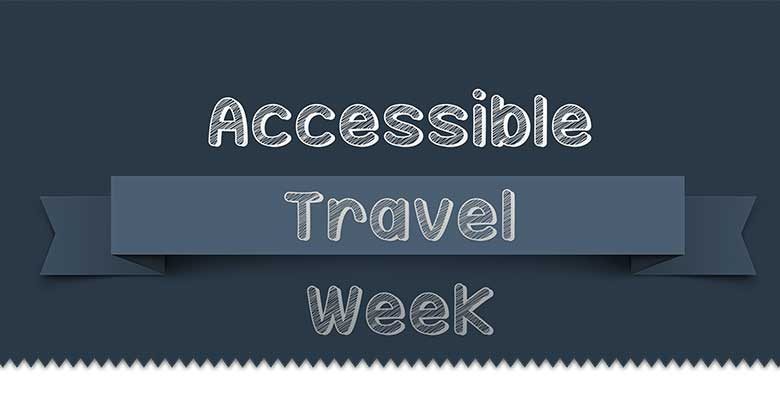
Accessible Travel Week: accessible accommodation
Are you unsure of the most accessible places to stay when travelling? Does the thought of staying anywhere other than your bedroom, where you have all your equipment, panic you?
I’m running an awesome social campaign called Accessible Travel Week where you can find hints and tips on how to book your dream holiday…
If you want some solid advice that will make finding your perfect accessible holiday accommodation a lot easier, then click here to watch our video on accessible accommodation to get some more actionable advice (there’s even a downloadable guide at the end).
Trust me, there is nothing worse after a long, uncomfortable flight to find out that your “accessible” accommodation has a few “small” steps, a tiny bathroom unable to fit your wheelchair in, and an abnormally high bed.
Ideally, you want to be certain that your accommodation can and will cater for your needs. After all, everyone needs a decent night sleep, especially on holiday, right?
In our video on finding the right Accessible Accommodation for you, you will see examples of what accommodations can do and provide for you, in order to make your stay comfortable, simple and stress-free. You’ll also see footage of when I visited Holiday Inn, who allowed me to use their accessible rooms to show the kind of adaptations and equipment you can find in good accessible accommodation (such as a ceiling hoist, accessible bathroom and a shower chair).
To watch our video on accessible accommodation, and find out what you should expect from the right place, and how to make sure you get the right accommodation for you, simply click here.
To increase the chances of your holiday being smooth, easy and simple, here are 3 useful tips:
1. Contact the accommodation prior to your stay. This way you can explain your needs and requirements and get confirmation that the accommodation is fully accessible. This also allows you to ask any questions to put your mind at ease.
2. Separate your must-haves from your nice-to-haves. Of course, we’d love to take everything with us, but frankly that is just not possible. This may mean contacting your accommodation prior to your stay and working out what they have available to you (i.e. they may have a manual hoist available for hire, meaning you won’t need to take yours).
3. Create a Plan B. Of course, we hate it when things don’t go to plan, but unfortunately in some cases, this does happen. Your equipment may break, the hotel may have promised you a piece of equipment which they can no longer provide, or you may have just forgotten something. Research, find and get details of an equipment hire company before you travel.
It’s completely understandable to worry about your accommodation, but follow these 3 simple steps, and you’ll decrease the chances of something going wrong.
Don’t let the fear of things not going the way you planned put you off visiting your dream destination, because the chances are, you will have a stress-free and relaxing holiday.
By Martyn Sibley
Want to learn more about accessible travel and to ask us your travel questions? Get in touch by messaging us on Facebook, tweeting us @DHorizons using the hashtag #AccessibleTravelWeek, emailing us at editor@disabilityhorizons.com or leaving your comments below.
Things that can go wrong!
The first time my partner tried to stay in a hotel as a wheelchair user there were storms the night before which damaged the hotel roof so we were greeted at the door to be told there was no usable disabled room. I thought this would be the one and only time he tried as he’s very nervous about being dependent. In fact facing a big problem and having it sorted out made him a lot more confident that obstacles can be overcome and people will help. In our experience the vast majority of the general public go out of their way to help, especially if you smile and ask nicely. Often its the people and places that look scariest that are most inclined to help. It’s mainly the people dealing with disabled people all the time that are more reluctant to put themselves out. Although student nurses are often queuing up to get the I’ve looked after a patient with complex needs box ticked on their assessment.
Congratulations for this great and interesting post. Thanks to you and your work, people with disabilities have more accurate information on accessible accommodation around the world. Greetings from https://www.accessiblemadrid.com
Let’s keep in touch!
Best wishes,
Arturo Garrido